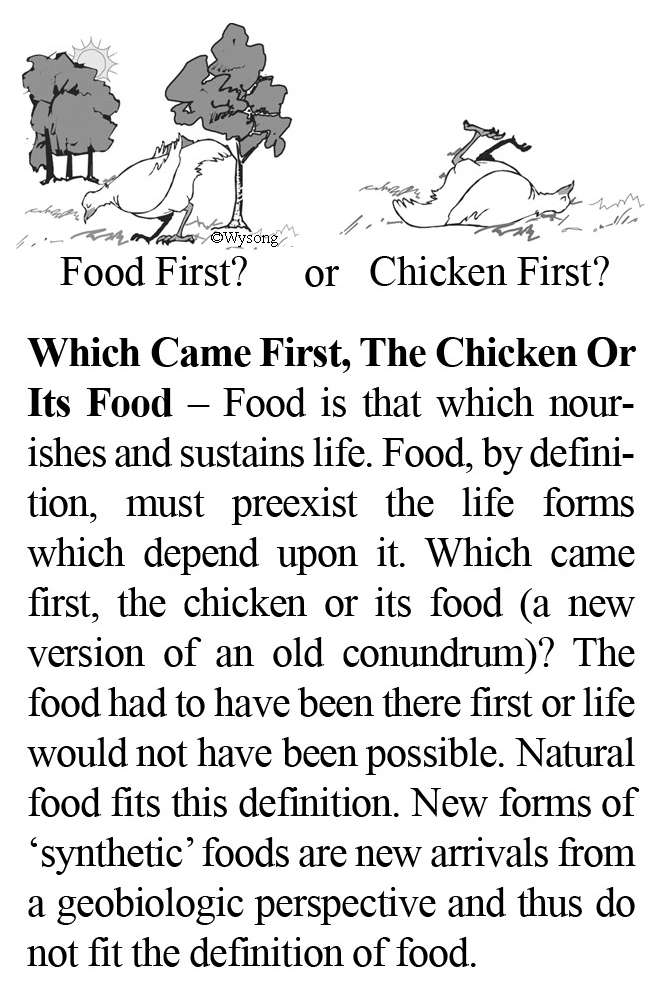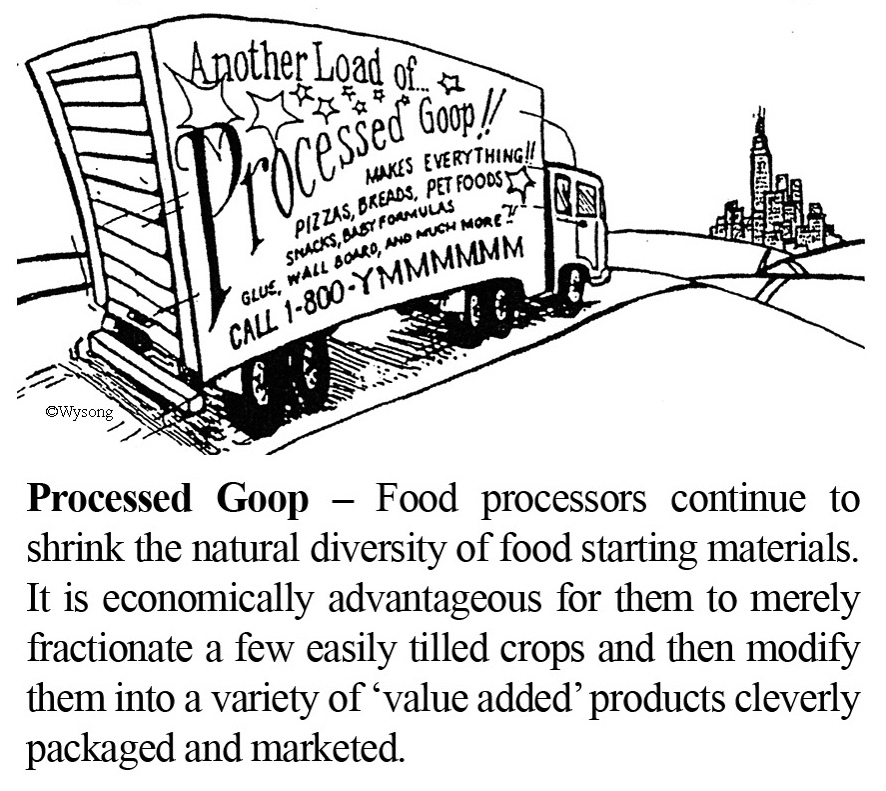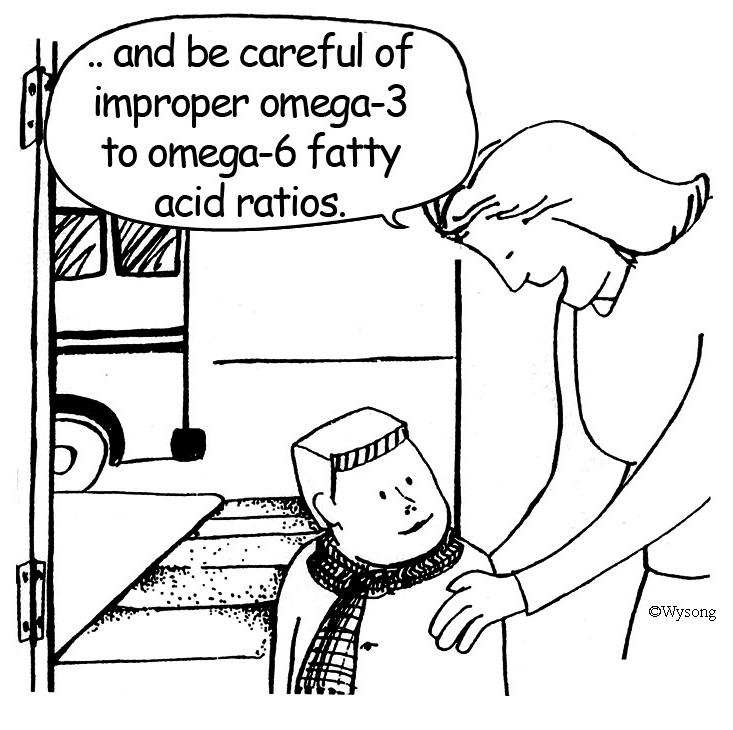Words of wisdom and miscellaneous facts by Dr. Wysong and others.
This is an accumulation over several decades and the accuracy cannot be attested to.
Wysong vs Nemos Bible Debate
COSMOLOGY LIES AS BIG AS THE UNIVERSE
⬇️ Click to scroll down to article
"We'll know our disinformation program is complete when everything the American public believes is false."
—William Casey CIA director 1981
The bigger the lie the greater its acceptance because people cannot believe authority figures would ignore reality.
To find truth we must hate the lie more than love accepted beliefs.
Fraud vitiates everything it touches. (common law maxim) Nudd v. Burrows (1875) 91 U.S. 416.
Fraud destroys the validity of everything into which it enters. Boyce's Executors v. Grundy (1830) 28 U.S. 210.
Fraud vitiates the most solemn contracts, documents and even judgments. United States v. Throckmorton (1878) 98 JU.S. 61.70.
FORWARD
The accepted cosmogony/cosmology (origin and nature of the universe) belief is:
—William Casey CIA director 1981
The bigger the lie the greater its acceptance because people cannot believe authority figures would ignore reality.
To find truth we must hate the lie more than love accepted beliefs.
Fraud vitiates everything it touches. (common law maxim) Nudd v. Burrows (1875) 91 U.S. 416.
Fraud destroys the validity of everything into which it enters. Boyce's Executors v. Grundy (1830) 28 U.S. 210.
Fraud vitiates the most solemn contracts, documents and even judgments. United States v. Throckmorton (1878) 98 JU.S. 61.70.
FORWARD
The accepted cosmogony/cosmology (origin and nature of the universe) belief is:
A Big Bang of nothing created an infinite meaningless universe containing atomic dust that gravitationally accreted into heavenly bodies including our Earthball moving in several different directions at 2.8 million mph and holding an atmosphere next to the vacuum of space while spontaneously forming life from primeval sludge that then evolved into complicated rocks called humans with no free will.
Long ago it became clear to me that the materialistic evolutionary part of that credo was false.
But I was on board with the cosmology part. After all, we see rocket ships going to and fro, there is a "Space Force," pictures of Earth and planets abound, astronauts float around and in the International Space Station, thousands of people and billions of dollars support it, and, of course, "all" the experts believe.
To question this is to be a conspiracy theorist, misinformationist, or even a lunatic. Oh my, we must, after all, follow the crowd.
The idea that we are being lied to about space didn't even enter my mind until a few months ago when what was left of my naive and trusting innocence had been totally demolished with the COVID-19 fraud.
We, the crowd, extend our trust to institutions charged with looking after our interests. But government, Big Medicine, education, media, industry, Big Tech, science, and NASA chase money, their own security, and even power over us.
That should not inspire confidence in beliefs they create, promote, protect with censorship, and even demand acceptance of.
If we want truth, we have to find it ourselves. To do that requires the opposite of trusting in others. It means sleuthing what the powers that be try to hide from us in internet archives, banned videos, censored "disinformation," and what "fact checkers" say isn't so.
Probing into the subject I was stunned to learn that:
That means unproven beliefs, stories, and even fakery are being passed off as science and truth.
This subject may seem inconsequential to everyday life. But that's only true if we aren't being lied to about it. If the truth is being hidden from us, we can be sure of one thing, it's not being done for our benefit.
Truth seekers learn that the scale and ostentatiousness of lies being fed to us means nothing can be tacitly trusted.
Everything of importance from government, media, industry, medicine, education, economics, science, history, religion, and popular society must be assumed to be false unless we prove otherwise by doing our homework and thinking critically.
This series will provide wake-up information to help you discover lies as big as the universe.
But I was on board with the cosmology part. After all, we see rocket ships going to and fro, there is a "Space Force," pictures of Earth and planets abound, astronauts float around and in the International Space Station, thousands of people and billions of dollars support it, and, of course, "all" the experts believe.
To question this is to be a conspiracy theorist, misinformationist, or even a lunatic. Oh my, we must, after all, follow the crowd.
The idea that we are being lied to about space didn't even enter my mind until a few months ago when what was left of my naive and trusting innocence had been totally demolished with the COVID-19 fraud.
We, the crowd, extend our trust to institutions charged with looking after our interests. But government, Big Medicine, education, media, industry, Big Tech, science, and NASA chase money, their own security, and even power over us.
That should not inspire confidence in beliefs they create, promote, protect with censorship, and even demand acceptance of.
If we want truth, we have to find it ourselves. To do that requires the opposite of trusting in others. It means sleuthing what the powers that be try to hide from us in internet archives, banned videos, censored "disinformation," and what "fact checkers" say isn't so.
Probing into the subject I was stunned to learn that:
| Nobody, including any scientist, can prove any aspect of the approved cosmogony/cosmology belief using experimentation and the scientific method. |
That means unproven beliefs, stories, and even fakery are being passed off as science and truth.
This subject may seem inconsequential to everyday life. But that's only true if we aren't being lied to about it. If the truth is being hidden from us, we can be sure of one thing, it's not being done for our benefit.
Truth seekers learn that the scale and ostentatiousness of lies being fed to us means nothing can be tacitly trusted.
Everything of importance from government, media, industry, medicine, education, economics, science, history, religion, and popular society must be assumed to be false unless we prove otherwise by doing our homework and thinking critically.
This series will provide wake-up information to help you discover lies as big as the universe.
"We'll know our disinformation program is complete when everything the American public believes is false."—William Casey CIA director 1981
"We know they are lying, they know they are lying, they know we know they are lying, we know they know we know they are lying, but they are still lying."—Aleksandr Solzhenitsyn
"We know they are lying, they know they are lying, they know we know they are lying, we know they know we know they are lying, but they are still lying."—Aleksandr Solzhenitsyn
|
12/24/2019
Click to enlarge, Ctrl + to enlarge further; Ctrl 0 to return to 100%
Most people believe the average diet based upon the official food pyramid is just fine. Some eat predominantly fast food. Others advocate veganism (eating only plant foods), or lacto-ovo vegetarianism (plants plus dairy and eggs). Others set their eating practices by the standards of holy writ that proscribe or sanctify foods. Others just eat what tastes good and that's logic enough.
People in general feel guarded and pretty jealous about their food choices and don't like others meddling. But eating is not recreation. Food choices are health choices. By and large, however, diet is a topic essentially ignored by the medical profession other than just to parrot what the public already hears on the television set. This includes marketing sound bites about cholesterol, calories, fat, fiber, or whatever else is making money for an industry at the moment. In conventional medical school curricula, doctors receive no special nutritional training and generally eat just as poorly as everyone else. The bewildering wonder of the body is to blame for the murkiness about what is or is not correct food. The human organism is so amazingly adaptable and forgiving that it will do its best to survive on whatever it is given. If the food is incorrect, there is usually no immediate harm because the body will call on its reserves. This buffer the body provides means wrong decisions may not manifest their full impact until late in life. Nutritional damage can even be delayed so long as to pass genetically to later generations. Yet the body's forgiveness is not bottomless. If the stress from improper food continues beyond the ability to adapt, disease, degeneration, and loss of vitality will result. Unfortunately, such consequences are so far removed in time from the eating regimen that caused them that few understand the relationship or can trace the connection. Nevertheless, like old bills turning up that you thought you would never have to pay, bad eating habits will come back to haunt us. The true test of any health idea lies so far out into the future that almost any claim can seem valid since there are apparently healthy people doing and eating just about anything—for the moment. So we must be cautious before subscribing to bold claims about what is or is not good to eat. A well-grounded philosophy needs to be in place if health is the objective. To sort through the competing ideas, all we have to do is put thinking first. A simple and reasonable principle emerges that is so logical that everyone can agree. Consider the following three premises: 1. Just like a tree is genetically adapted to absorb certain nutrients from soil, and a lion is genetically adapted to thrive on prey, and a deer is genetically adapted to browse on vegetation, so too are humans genetically adapted to certain kinds of food. 2. Most of the foods we are presently exposed to are a product of the Agricultural/Industrial Revolution and occupy a small part of the genetic history of humans. (Refer back to the 550-mile time line in which less than an inch represents modern eating practices.) 3. The natural diet to which humans are genetically adapted must predate them. In other words, how could humans exist before the food they needed to survive? We were completely developed biologically prior to agriculture and any method of food processing. That means whatever diet archetypal humans ate was the perfect diet. It was the diet responsible for the existence and development of the incredibly complex human organism. That diet was the milieu, the environmental nutritional womb from which we sprang. The logical conclusion we must draw from these three premises is: The best food for humans is that food which they would be able to eat and survive on as it is found in nature. That means no dyes, preservatives, synthetics, nutritionally barren cooked starches, or refined sugars and oils. Our tissues were obviously designed to be bathed in food nutrients derived from natural living foods found in nature. Make no mistake, if we are not eating according to this principle our bodies are being constantly stressed by deficiency, imbalance, and toxin exposure. The result of generations ignoring this principle is the current epidemic of obesity, chronic degenerative diseases, the exhaustion of digestive processes, and premature aging.
This is the price we pay for becoming consumers—unthinking, passive, and dependent. Wendell Berry wrote, "Our kitchens and other eating places more and more resemble filling stations, as our homes more and more resemble motels…Food industrialists will grow, deliver, and cook your food for you and (just like your mother) beg you to eat it. That they do not yet offer to insert it prechewed into your mouth is only because they have found no profitable way to do so…The ideal industrial food consumer would be strapped to a table with a tube running from the food factory directly into his or her stomach."¹
We race through life on the money trail hell-bent on increasing life's quality by affording more and bigger toys and replacing foods nature intends us to eat with industrial artifacts that bear no resemblance whatsoever to anything coming from nature. This race after things, convenience, and time off (to recreate with as much speed, ease, noise, and violence as possible) ignores the true cause and effect relationships of our body in nature. We thus have become exiled from biological truth and come to think that life is only about economic transactions and that food is only about recreation and sating appetite. Certainly modern industry is to blame for their beguiling advertising (brain washing) and adorned food creations that, as Berry quipped, smell as prettified as the actors promoting them. Our industrial benefactors have replaced nature, quality, and health with throughput, economy of scale, and profit. We, in turn, buy the pig in the poke. If we awaken our consciousness we will find that food and health really have nothing to do with the dyed, breaded, sauced, and sterilized creations of profiteers. For one thing, a feature of all natural foods is that they are raw—alive if you will. Let me make the connection here, in principle, to a law in biology. The Law of Biogenesis says life can only come from preexisting life. Life begets life. If we eat living foods we enhance our own life. If we eat dead devitalized foods (virtually all cooked and processed foods), we become devitalized and dead. Granted, this will not happen at once, but as the adaptive reserves within the body are exhausted we become just like the lifeless food we eat.
Studies of the diets of past cultures and today's primitive societies reveal that they ate exactly as their genes and the environment dictated: natural and raw.² Yes, even the meats, organs, eggs, and insects. Remember, we're looking far back in time to the prototype, even before the use of fire (much less the microwave, stove, oven, grill, deep fryer, or extruder).
Raw foods make so much sense. After all, we were not suddenly dropped from outer space onto Earth with fry pans, matches, and rotisseries. We began on the forest floor, not in a line at a fast food counter. We had only our natural bodies in a natural world. Every other organism on Earth eats raw foods exactly like they are found in nature. How can we think nature doesn't notice our decision to flout her instructions and change all that? All of the mystery about what is or is not proper to eat vanishes if we just imagine ourselves placed in nature in the total absence of modern technology. Ask yourself the question: What would I eat and what could I eat? Humans can eat and digest fruits, nuts, insects, a few plants, honey, worms, grubs, eggs, milk, and animal flesh. These are about the only food substances in nature that humans are capable of digesting without technological (including fire) intervention. These are, in fact, the very foods that are the mainstay of nomadic primitive societies. Only when these foods become scarce do unpalatable foods such as grains and some otherwise inedible vegetables get cooked and processed to change their taste, neutralize toxins, and increase digestibility. What would have been the single most predominant human food in the wild? Likely prey. With a family to feed we would look for the most calorie- and nutrient-dense food we could find. That would not be a few wheat seeds, some grass, or a root. We would let the herbivores do all the grazing and digestion with their specialized stomachs that are capable of converting essentially any plant material into edible protein and fat. Then we would eat them. Some people are repulsed by this idea. I must say that I cannot easily find comfort in it either. But that's the way things are on planet Earth in this biological web we are entangled in. It is reality and solutions can only come from facing reality. The simple truth of nutrition is that we should eat what nature provides that we can digest. Yet this is never explained in nutrition textbooks, and PhD nutritionists graduate without even grasping it. The understanding that we are designed to eat raw, natural food we can digest cuts through all the theory, belief, lore, and guesswork. It matches our natural bodies with our natural food. Modern cookery and food processing has misled us. Foods such as granola, soymilk, and rice that are marketed as the ultimate health foods are in fact not natural human foods at all. These products either do not exist in nature, are so scarce in the wild as to never possibly be a sustaining food, or in their raw precooked form are unpalatable and even toxic. For example, raw soybeans contain a variety of chemicals that can stunt growth and interfere with the body's digestive enzymes. Eat enough of them and death is the result. Grains in their raw form are unpalatable, indigestible, and also potentially toxic. In nature one would never find enough kernels of rice, wheat, or barley to make up a meal, even if they were edible in their raw form. (Sprouted seeds and grains are an exception since they are digestible, raw, and nutritious.) Now then, these understandings create somewhat of a dilemma. Knowing what our natural food is and consuming it are two different things. We are so acclimated to the modern diet that the notion of eating raw meat, for example, is nauseating to most. Never mind grubs. Nevertheless, as evidenced by primitive (but nutritionally advanced) peoples, raw meat and organs can be eaten with great nutritional benefit and they are totally digestible. Some cultures even bury raw meats and let them rot (ferment), and then consume them with gusto. These societies are robust and healthy until modern foods encroach. Then, like a dirty and toxic bathtub ring, modern degenerative diseases decimate those people at the periphery where there is contact with modern foods.³⁻⁴
If you are panicking at the thought of eating raw foods, yes, there is danger of food-borne pathogens. But if careful and clean about preparation, the danger is far less than the danger of a lifetime eating devitalized processed foods. Raw natural foods must be safe or our ancestors would not have survived and we would not exist.
Granted, it is very difficult today to achieve the ideal raw natural diet. But we can at least steer our choices in that direction. This doesn't mean no processed or cooked foods should be eaten. Look around the grocery store (usually the outside aisles) and consider what it is that could be eaten in its natural state. Increase the proportion of those foods. Choose processed foods that compromise natural principles the least and are as close to nature as possible. They should be whole foods, packaged carefully to protect nutrient value, and be free of synthetics, hydrogenated oils, refined salt (natural is okay) and sugar. Meats and eggs should be cooked as lightly as possible. Choose foods requiring the least alteration and adulteration. For example, whole raw milk yogurt is ideal. The same thing pasteurized would be next best. The same thing pasteurized and homogenized next. Worst would be non-fat, pasteurized, homogenized, artificially flavored and sugared yogurt (which is, of course, what the majority eat because it tastes most like what we are used to—candy). Eat in variety and moderation the best foods that can be found. (More specific guidelines are in a following chapter.) Don't sweat the small stuff or panic when a meal is not perfect. Freshness, rawness, and variety are the principles to reach toward. That is not something that can be easily or perfectly achieved in our modern day. Thankfully, the amazing human body is forgiving if small compromises are made here and there. Just keep the ideal goal in sight and don't worry about veering off the path now and then. If you agree, disagree, have questions, or have a correction please let me know. Comment below or email me at [email protected]
Leave a Reply. Choose Any Name
Comments
|
Introduction
1. We Can Agree 2. Possibility Thinking 3. The Solver Principles 4. Our Owner's Manual 5. We Live in A Unique Time 6. Being Health Smart 7. The Illusion of Youth Health 8. The Good Old Days 9. Timing Life 10. Exercise 11. Hormones and Steroids - A Two-Edged Sword 12. The Female Hormone Problem 13. Growing Older 14. Squaring the Curve 15. Healthy Dos and Don'ts 16. The Medical Profession 17. The Greatest Threat to Health 18. Don't Surrender to Medical Care 19. But We Live Longer Today 20. Dollars Don't Make Health 21. Disease Does Not Strike Us 22. Germs Don't Cause Disease We Do 23. From Where Does Healing Come 24. The Best Food 25. Food Ethics 26. Healthy Weight 27. Healthy Eating Ideas 28. First Things First 29. Hopelessness 30. Depression 31. Memories 32. Addiction 33. Blaming the Parents 34. Surviving Tragedy 35. Touch 36. Music as Healer 37. Humor 38. Pets as Life Savers 39. Pet Keeping - A Serious Responsibility 40. The Myth of 100 Complete Pet Foods 41. Feeding Pets as Nature Intended 42. Industry vs. Earth 43. Population 44. Modernity's Deception 45. Animal Rights 46. Biophilia 47. Respect for All Life 48. Doing Good With Business 49. The Global Economy 50. The Power of Money 51. Financial Affairs 52. Work as Friend 53. Government 54. The End of Civilization 55. Freedom Is Not Equality 56. Sex 57. Being in Love 58. Marriage - The Union of Opposites 59. Divorce 60. The Family Nest 61. Having Babies 62. Children 63. The Empty Nest 64. Experience 65. Education 66. Life Is Uncertain 67. Things Mound Up 68. Murphy's Law 69. Life's Predictability 70. Finding Home 71. Learn From History 72. Shaping the Future 73. The Other Line Always Moves Faster 74. Little Things Add Up 75. Growing Up 76. Alone 77. Hope 78. Paying the Success Price 79. Change A Wonderful Thing 80. Being the Best You Can Be 81. Do Something, Something Happens 82. Change the World 83. Growing Good People 84. Words 85. Genius 86. Listen and Learn 87. Mind Over Matter 88. Looking Good 89. Protecting Yourself 90. Self Sufficiency 91. Life Is Math 92. Ethics 93. Conscience 94. The Long View 95. Being Real 96. Change 97. End and Beginning Figures |


 YouTube
YouTube Podcast
Podcast



 RSS Feed
RSS Feed
 Twitter
Twitter
0 Comments